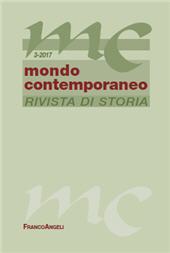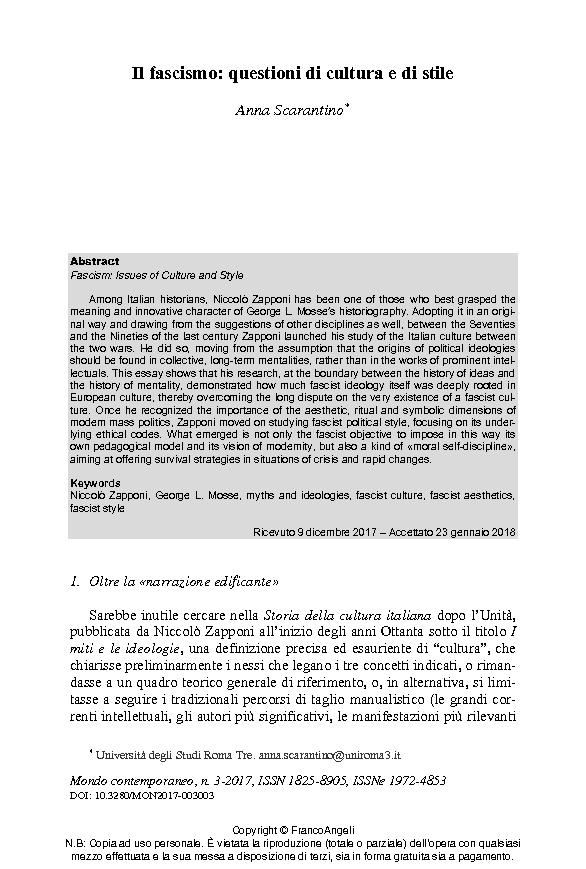Il fascismo : questioni di cultura e di stile
31-56 p.
Among Italian historians, Niccolò Zapponi has been one of those who best grasped the meaning and innovative character of George L. Mosse's historiography. Adopting it in an original way and drawing from the suggestions of other disciplines as well, between the Seventies and the Nineties of the last century Zapponi launched his study of the Italian culture between the two wars. He did so, moving from the assumption that the origins of political ideologies should be found in collective, long-term mentalities, rather than in the works of prominent intellectuals. This essay shows that his research, at the boundary between the history of ideas and the history of mentality, demonstrated how much fascist ideology itself was deeply rooted in European culture, thereby overcoming the long dispute on the very existence of a fascist culture.
Once he recognized the importance of the aesthetic, ritual and symbolic dimensions of modern mass politics, Zapponi moved on studying fascist political style, focusing on its underlying ethical codes. What emerged is not only the fascist objective to impose in this way its own pedagogical model and its vision of modernity, but also a kind of «moral self-discipline», aiming at offering survival strategies in situations of crisis and rapid changes. [Publisher's Text].
-
Articles from the same issue (available individually)
-
Information
ISSN: 1972-4853
KEYWORDS
- Niccolò Zapponi, George L Mosse, myths and ideologies, fascist culture, fascist aesthetics, fascist style



